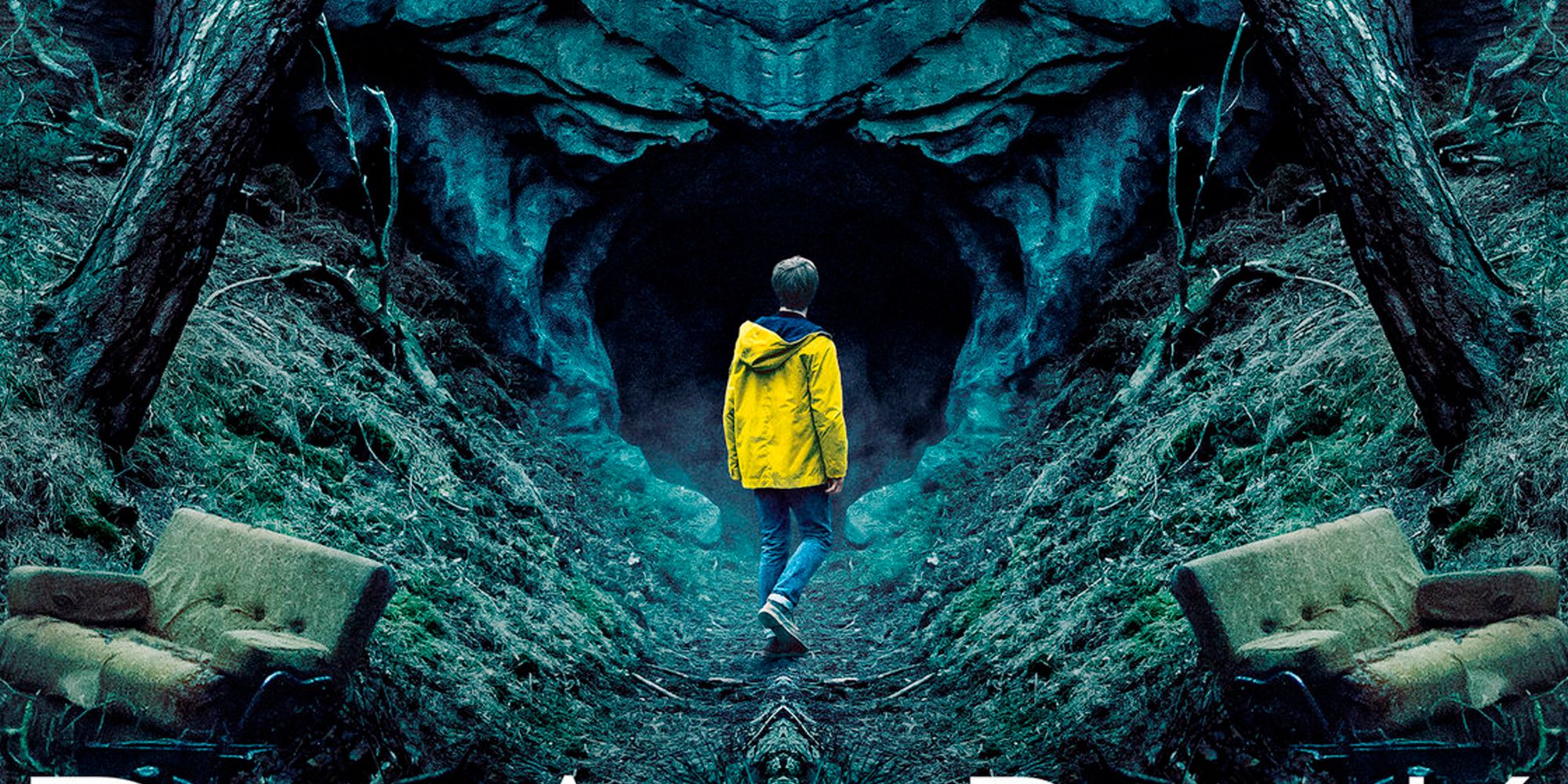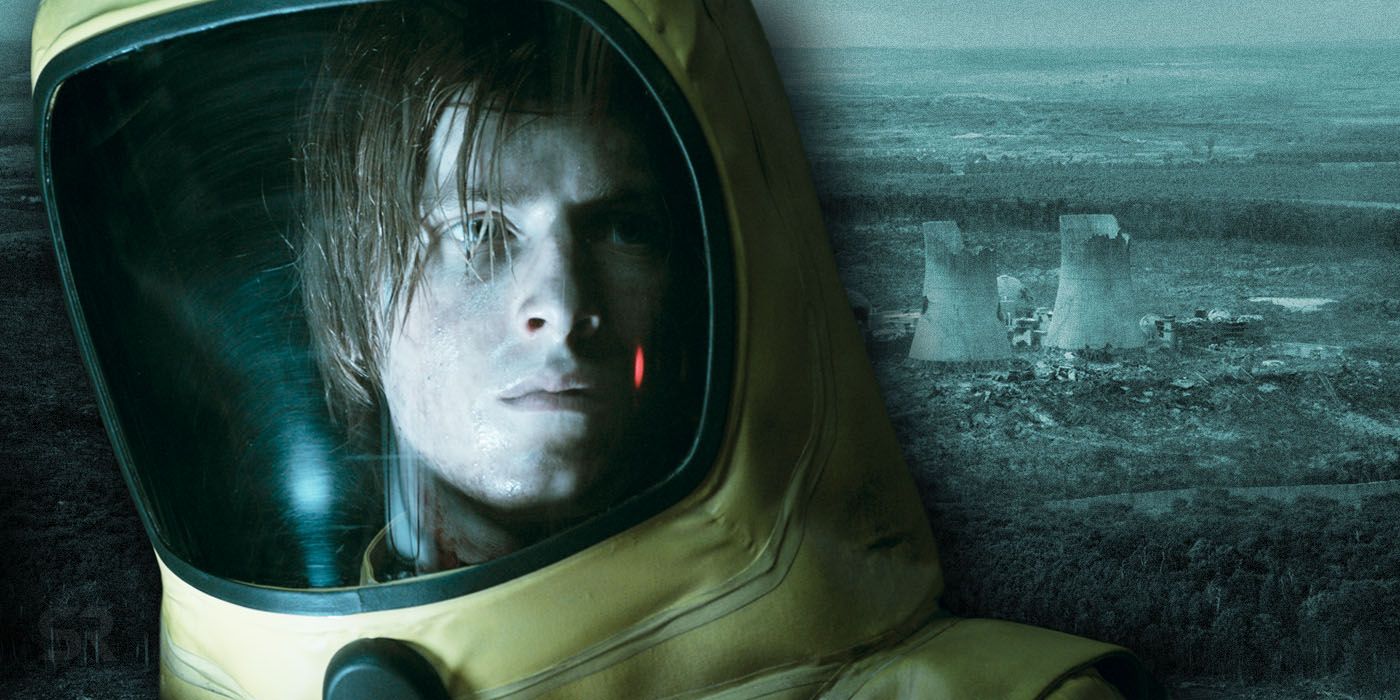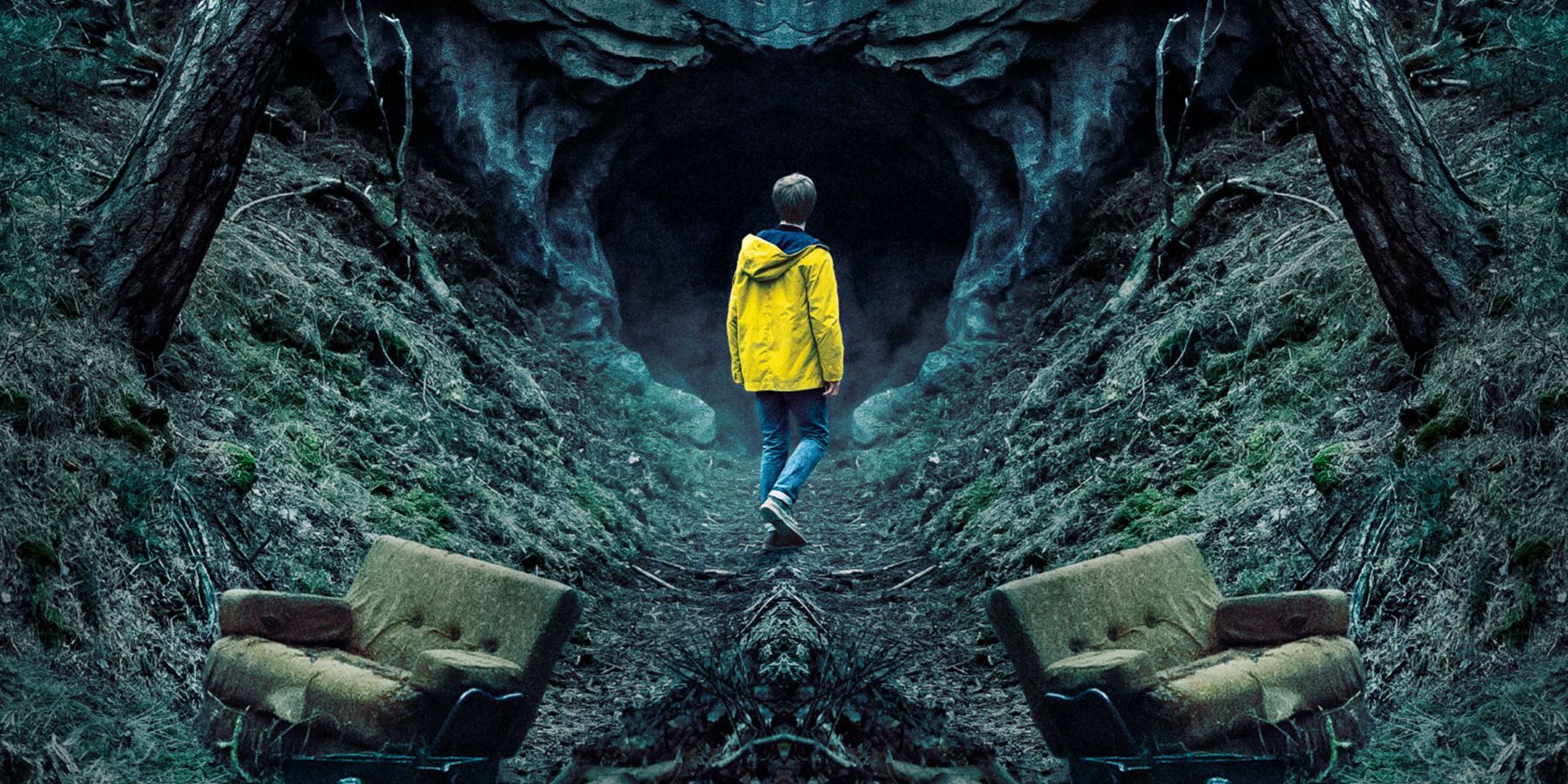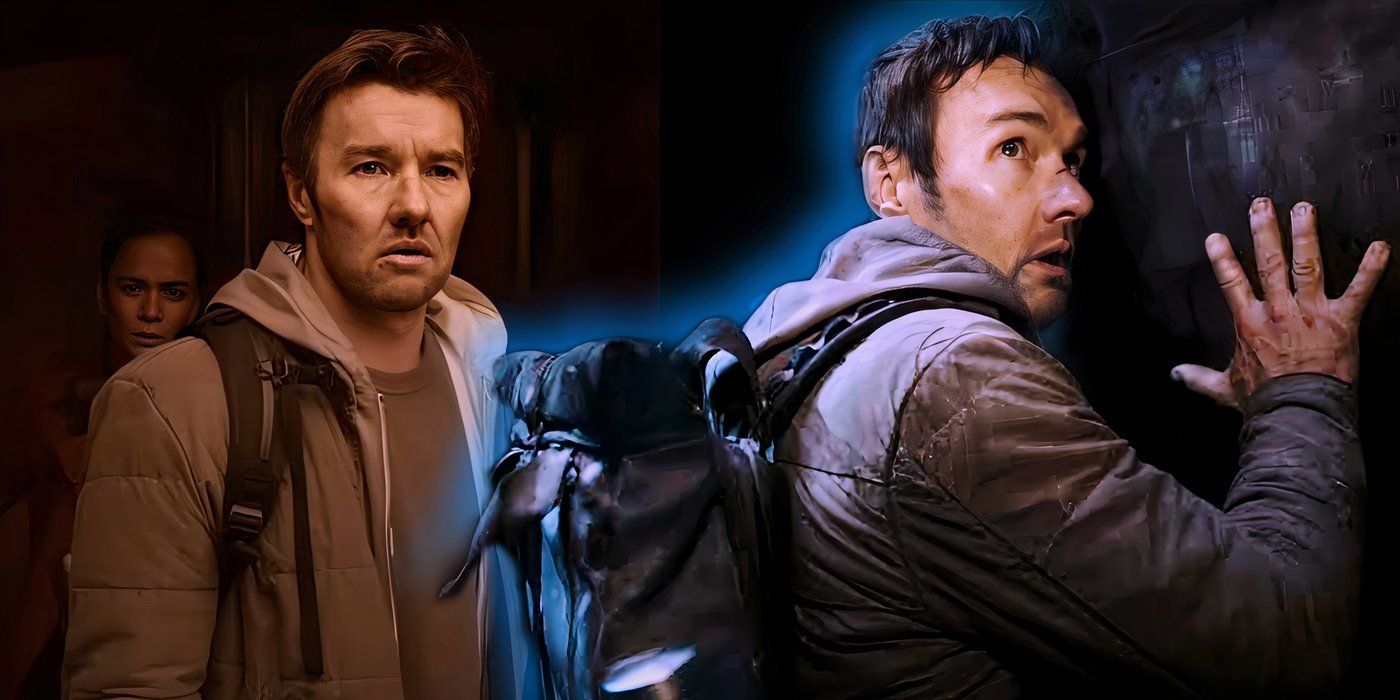Summary
- Apple TV+’s Dark Matter matches the complexity of Netflix’s Dark with a mind-bending narrative exploration of parallel universes and alternate timelines.
- Despite differences in story and character beats, both Dark and Dark Matter push the boundaries of sci-fi with intricate timelines and character developments.
- Dark’s high Rotten Tomatoes scores highlights its unique quality as a sci-fi show that sets a high standard for others to match in terms of storytelling and execution.
Even though I have watched many sci-fi shows since Netflix’s Dark, I don’t think any of them, except for a new Apple TV+ show, have come remotely close to being as twisted and mind-boggling as the German show. Co-created by the couple Baran bo Odar and Jantje Friese, Dark premiered on Netflix in December 2017 as the streaming platform’s first German-language original show. Although it took its time to find its audience and did not instantly garner mainstream attention like Stranger Things, it gradually rose in the ranks as one of the best sci-fi shows on the streaming platform.
Owing to the ambitiousness and complexity of its overarching narrative, Dark kept me hooked throughout its runtime, leaving me asking for more after every season. Unfortunately, it eventually ended its run with three seasons, leaving a bittersweet void for viewers like me who constantly crave complex sci-fi shows that do not shy away from adopting convoluted but compelling narratives. Not a lot of sci-fi shows since Dark have made me sit and think about their stories long after their credits roll, but Apple TV+’s new series is starting to have a similar impact.

Related
10 Shows To Watch If You Liked Netflix’s Dark
Dark is one of Netflix’s most intriguing original shows, and here are 10 more shows that any Dark fan is bound to love.
Dark Matter’s Confusing Multiverse Exploration Is As Complex As Dark’s Timeline
What Dark Achieves With Its Timelines, Dark Matter Presents With Its Parallel Worlds
Even though Apple TV+’s Dark Matter and Netflix’s Dark riff on some similar scientific concepts, the two shows are significantly different when it comes to their story and character beats. However, both initially take time to set the foundation for their sci-fi ideas and then go all out with their exploration of confusing alternate timelines, parallel realities, and paradoxes. Like every sci-fi show and movie, both take many scientific leeways and are not bereft of plot holes. But the fact that they even attempt to execute something that is so conceptually mind-bending elevates them above other sci-fi series.
Like
Dark
keeps going back and forth between multiple timelines,
Dark Matter
keeps shifting between myriad parallel universes.
Although many aspects of Dark‘s overarching story are puzzling, what primarily makes it mind-bendingly suspenseful and thrilling is its complex portrayal of timelines and the distorted family trees they end up creating. Even from a thematic standpoint, Dark is no less intricate. It portrays how its characters travel through time to end their repetitive cycles of death and destruction only to learn they were perpetuating it in the first place. Using a box that allows one to travel to parallel worlds as a narrative device, Dark Matter, too, walks through many “roads not taken” by its characters.
As it progresses, it becomes more and more puzzling when alternate versions of the same character emerge and start wreaking havoc in each other’s lives. Like Dark keeps going back and forth between multiple timelines, Dark Matter keeps shifting between myriad parallel universes. With these complex ideas surrounding parallel universes and time travel, both shows often gave me a headache but also made me think about philosophical questions surrounding free will, determination, and the long-term rippling impact of even the most trivial decisions I make.
How Apple TV+’s Dark Matter Compares To Netflix’s Dark (Based On Rotten Tomatoes)
Dark’s Audience & Critics’ Scores Are Nearly Perfect
Dark had an incredible run on Netflix and still boasts an impressive average Rotten Tomatoes score of 95% across all seasons. Its second season even has a perfect critics’ rating of 100%, which it rightfully earned. Dark Matter‘s score of 81% is relatively less. However, it still ranks among the best sci-fi shows of 2024. Given how both shows are incredible in their own right, it would be unfair to compare them based on their critics’ ratings. However, Dark‘s audience and critics’ scores on RT clearly suggest that it was one of a kind and hardly any sci-fi shows will come close to matching its quality.
|
Show |
Tomatometer Score |
Rotten Tomatoes Audience Score |
|
Dark Season 1 |
90% |
92% |
|
Dark Season 2 |
100% |
96% |
|
Dark Season 3 |
97% |
94% |
|
Dark Matter Season 1 |
81% |
81% |
Even for me, Dark Matter, at least after season 1, is still far from being the perfect Dark replacement. However, I cannot help but appreciate how, like Dark, Dark Matter is bringing pure sci-fi back by entrancing viewers with its imagination and daring to explore some complicated scientific concepts like quantum superposition and entanglement. Hopefully, like Netflix’s Dark, Apple TV+‘s Dark Matter will get to expand its ideas and last for at least two more seasons despite being limited by its source material.
Can Dark Matter Be Dark’s New Replacement?
Dark Matter Is Still Far From Achieving Dark’s Perfection
Given how Netflix’s Dark redefined how time travel could be used as a narrative device in science fiction, it would be unfair to call Dark Matter its replacement. Apple TV+’s Dark Matter has many creative tricks up its sleeve that allow it to etch its own distinct identity among the slew of multiversal movies and shows that have come out in recent years. However, it is still not in the same league as Netflix’s Dark in terms of intricate storytelling, attention to detail, and philosophical depth.
Dark Matter
, in contrast, struggles to hide its plot contrivances in season 1 despite having enough plot twists and turns to distract audiences.
Like every epic sci-fi show or movie, Netflix’s Dark has a fair share of plot holes and narrative imperfections, making it nearly impossible to piece together some elements of its labyrinthine story. However, these minor pitfalls are overshadowed by the brilliance with which it handles its ambitious ideas and complex timelines. Dark Matter, in contrast, struggles to hide its plot contrivances in season 1 despite having enough plot twists and turns to distract audiences. If it returns for more seasons, Dark Matter might fix these flaws, but it will have to significantly elevate itself to match Dark‘s genre-defining excellence.

Related
Netflix’s Dark: The Series’ Timeline Explained
Let’s break down the complex, time-travel-heavy timeline of Netflix’s German-language series Dark, based on the events of seasons 1 and 2.
Will Dark Matter Get As Many Seasons As Dark?
Dark Matter Might Run Out Of Source Material Content
Dark Matter has been performing well on Apple TV+, which improves its chances of returning with more installments. However, the Apple TV+ show is based on Blake Crouch’s book of the same name, and its story developments seem to align with the book’s pace. Owing to this, Dark Matter might run out of source material content by the end of season 1. Fortunately, Blake Crouch is also the creator of the Apple TV+ show, allowing him to expand his book and show’s lore and world-building if the streamer renews Dark Matter for more seasons.
As the book changes in Dark Matter season 1 suggest, Blake Crouch has already given minor characters like Amanda and Ryan more significance in the show. This allows him to continue the show for at least one more season if everything else falls into place. However, Dark Matter‘s future will ultimately depend on whether Apple TV+ believes it is profitable enough to warrant additional seasons. Hopefully, like Netflix Dark, the Apple TV+ show will also get the opportunity to explore the entire scope of its fascinating sci-fi ideas.
Dark Matter season 1’s finale is scheduled to be released on Apple TV+ on 26th June.



